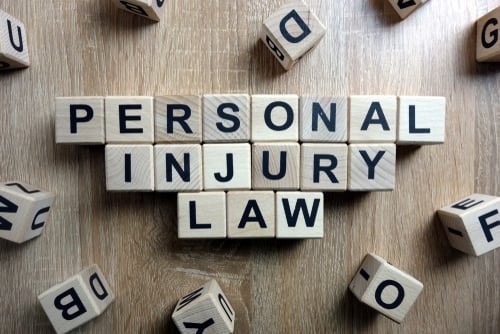Florida’s Personal Injury Laws (Everything You Need to Know)

If you’re injured in a car accident, or a slip and fall accident, you may be considering legal action. Filing a personal injury claim against the responsible person can help you collect the funds you need to recover from your injuries. If you’re considering a personal injury lawsuit in Florida, here are a few things that you may need to know:
1. Car Accidents Are the Most Common Type of Claim
Car accidents are the leading cause of personal injury claims in Florida. Florida is a no-fault auto insurance state, which means you’ll initially seek compensation from your insurance company.
2. You Have Just Four Years to File a Personal Injury Claim
Regardless of the cause of your personal injury, Florida limits your timeline to pursue legal action to just four years from the date of the accident.
3. You Can Still Be Found At-Fault
Even though Florida is a no-fault auto insurance state, this doesn’t mean that who’s at fault for an accident doesn’t matter. In some cases, the at-fault party may be responsible for damages.
4. Collecting Evidence is an Important Part of Your Case
While it may seem obvious to you who is responsible for your accident, the state still requires that you collect evidence and build a case. A lawyer can be useful in building your case and helping you collect things such as the police report, surveillance footage, witness testimony, and personal photos and videos from the accident scene.
5. Punitive Damages are Available
Florida does allow for punitive damages, which is the payment of funds with the intention of punishing or preventing, the person from causing an accident again. This is often used in cases where egregious negligence was used such as drunk driving.
6. Florida Follows Comparative Negligence Laws
Florida is a comparative negligence state. This means that more than one person can be responsible when an accident occurs.
7. The Value of Your Case Varies Depending on Your Details
Florida doesn’t assign a single value to all personal injury cases. Instead, each case is considered separately, based on the severity of your injuries and your damages.
8. The Government Can be Guilty of Negligence
While less common than other types of cases, it is possible to file a claim against the government for negligence in Florida.
Are You Eligible for a Personal Injury Lawsuit in Florida?
If someone else’s negligence was the cause of your accident, then you may be eligible for a personal injury lawsuit. Talking with a personal injury lawyer in Florida is the best way to find out if your case is eligible.
Questions About Filing a Personal Injury Lawsuit in Florida?
You may have additional questions about filing a personal injury lawsuit in Florida, in which it may be helpful to reach out to a lawyer. The pain and suffering that you experience in an accident can continue long after the accident itself. A personal injury can also leave you with many costs to deal with, including medical bills, lost wages, and rehabilitative costs.
A personal injury lawsuit can help you recover some of these costs. Filing a personal injury lawsuit in Florida requires the collection of certain evidence and filing within the timeline. To ensure that you meet all of the state’s requirements, it can be beneficial to work with a personal injury lawyer.
Contact a Fort Lauderdale Personal Injury Lawyer to Discuss Your Personal Injury Case in Florida
Did you or a loved one sustain serious injuries due to an accident in Florida? Don’t let the medical bills pile up while you wait for the negligent party or their insurance company to do the right thing. Right now, you need an aggressive personal injury attorney on your side, fighting to get you the compensation you need, want, and deserve. The skilled attorneys at Lawlor, White & Murphey represent clients injured because of an accident in Broward County, Fort Lauderdale, Coconut Creek, Plantation, and throughout Florida. Call (954) 525-2345 or fill out our online contact form to schedule a free consultation about your case. We have an office conveniently located at 2211 Davie Boulevard, Fort Lauderdale, Florida, as well as offices in Pembroke Pines, Weston, Coconut Creek, Plantation, and Pompano Beach, FL.
The articles on this blog are for informative purposes only and are no substitute for legal advice or an attorney-client relationship. If you are seeking legal advice, please contact our law firm directly.